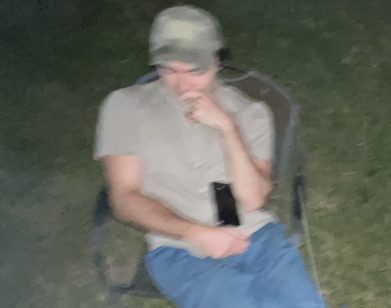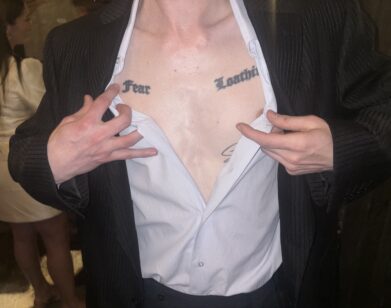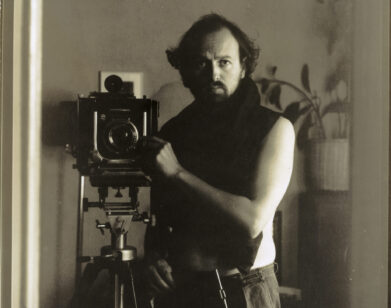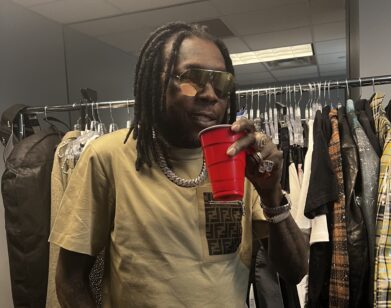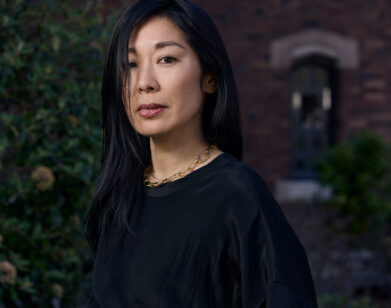books!
Tao Lin: Chadded Out of Society and Into Sincerity
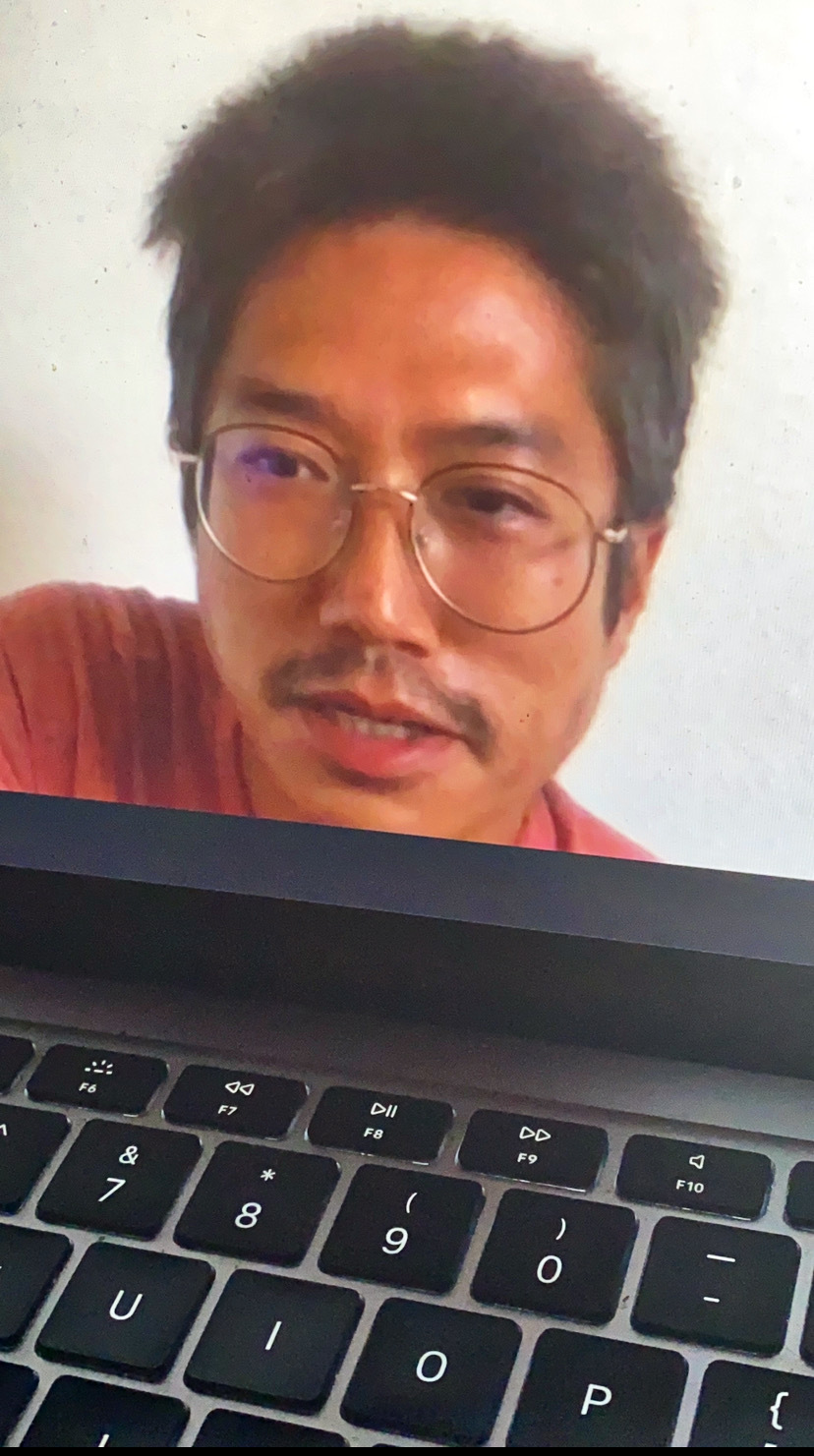
A year ago, I did not know that I would become such utter boys with @themasterofcum, a fellow chadded author. I first met him on New Year’s Eve, a rather symbolic time to meet a guy, I should think. Honor Levy, Obese and I, having gone Harry-Ron-and-Hermione mode on Honor’s birthday just weeks before, squadded again for New Year’s, this time meeting up with Master and his girlfriend at Master’s apartment, where we chilled and discussed Phillip Roth and John Cassavetes before Obese, Master and I went Husbands Mode for the first time (and surely not the last) on the streets of downtown Manhattan on that crisp winter’s night.
Master and I hit it off. Our friendship blossomed just as I got the Tao Lin follow—a major milestone in a young author’s life— and began my correspondence with Tao, in early spring (Instagram DM’s which mostly centered on how little we each planned to get vaccinated). Master, a Millennial with a Gen Z mindset, shared many of my ideas on how contemporary literature was shifting from pol’d-out Millennial navel-gazing to a certain Gen Z Christian exuberance, a naive-seeming (Matthew 18:3), cheerful and warmhearted sobriety, the true New Sincerity, an emergent literary movement that some have begun to call Alt Lit 2.0.
Leave Society is the next summit in Tao’s autofictional odyssey. “Li,” an elder-Millennial Manhattanite novelist vows to “try to understand his own reality,” devoting himself to researching and exploring pharmaceuticals, environmental toxins, romance, vaccines, psyops, psychedelics, statins, god, UFOs, autism, and “dominator” vs “partnership” models of society, all while spending time with his parents and their toy poodle in Taiwan, where quotidian scenes of bickering, eating and visiting doctor-herbalists coalesce to a grand project of self-rehabilitation.
Around the time I began to feel the first rumbles of Leave Society churning in the gargantuan organs of the Random House presses, @rfoust, Jiv Johnson, Zachary, Dagsen, Ivan, Master and I coalesced around the then-zygotic Instagram meme page @taolincellectuals. Some believed we were a team of unpaid interns at Vintage Random Rouse and The Clegg Agency. To others, we were kings.
Thumbs buff from meme-ing Tao into the canon, we knew our next step was to sit down, chads-to-chad, and connect with Tao, and to get Tao to pass the Alt-Lit torch to us. So, embodying Li, we boarded a relaxed 2:45 from Grand Central to my parents house in Poughkeepsie to talk Leave Society with Tao. We fired up two voice memos and started screen-recording our Zoom call. Within a matter of seconds, a muted, bespectacled Tao appeared on our screen, looking somewhere past the camera with an “is-this-thing-working” type expression.
———
MASTER: So, before we begin, we want to know if you promise on the record to write superlative blurbs for our forthcoming debut novels.
TAO: Both of your novels?
MASTER: Yeah.
TAO: When are they coming out?
WLT: They’re unpublished.
MASTER: Unpublished but hopefully this year. Or next.
WLT: Eventually.
TAO: Yeah, I think I can promise that. Wait… actually, I feel like I’ll read both of your novels, but my blurbs usually aren’t that superlative. I try to stay descriptive. The most I usually say is that I highly enjoyed it.
MASTER: Do you think we could get a “highly enjoyed” from you?
TAO: I’ll at least read your novels. I can’t promise to highly enjoy them.
MASTER: Wait, we might need to converse. [To WLT] Do you think we can go on with the interview?
TAO: I don’t know if I’ll recommend your novels to my agent. I’ve recommended probably six or seven things to him and he’s rejected all of them.
MASTER: Would you say that as soon as you recommend a book to Bill Clegg that it’s almost like a curse?
TAO: No. That’s not how I’ve thought of it. I recommended Honor Levy to him and he said he was happy to read her stuff.
WLT: She seems to be the closest of all of us to getting “clegged.”
MASTER: True. But, we’re hoping that that will change after this interview with you.
WLT: We’ve got a lot of mileage out of you on @taolincellectuals.
TAO: Yeah. I’ve wondered, where does the name “cellectuals” come from?
WLT: The first account was just called “incellectuals.”
MASTER: Yeah, over quarantine there was a popular account @incellectuals, it was the first to use a group of admins posting anonymously. It was a compound word for intellectuals and incels. And then the suffix ‘cellectuals’ has been adopted by numerous accounts to describe this way of posting where a group of posters all post on a common topic.
TAO: Do you guys like incels?
WLT: I feel sympathy for what are known as incels. How do you feel about incels?
TAO: I like them, yeah. I feel that I relate to them. I feel like I might have been an incel in high school or college. But I don’t remember the term existing back then. When did it appear?
MASTER: Unfortunately I think the word has become a catch-all phrase people use to smear any guy they don’t like. But really there’s nothing wrong with being an incel.
WLT: Are you familiar with the term “volcel”?
TAO: No. What’s that?
MASTER: In your periods of celibacy, you may have been more volcel than an incel.
WLT: Volcel means voluntary celibate.
TAO: Maybe recently I’ve been a volcel, but in high school and college it wasn’t voluntary. I did have sex in college. I had a girlfriend my sophomore year. But I didn’t really think about sex. I wanted companionship. I felt lonely.
MASTER: There may have been a few incels that were explicitly misogynistic online, and they gave all incels a bad name.
TAO: Yeah, I don’t like the misogynist incels. I like the incels that are just not having sex. I like their celibacy partly because of how over-sexed culture seems to me, and how guys seem really focused on having sex all the time.
WLT: What are your thoughts on celibacy?
TAO: Now I’m in a relationship and I have sex, but when I was celibate from 2014 to 2017, I was just isolating myself in my room. It wasn’t about not having sex; it was more about being alone because my friends were addicted to pharmaceutical drugs, and I was trying to get away from that. So it was more about being alone.
WLT: Would you recommend people try celibacy?
TAO: Yes. It seems like a good thing for people to try. If you stop thinking about sex, it frees you to do other stuff.
MASTER: Do you think it helped your writing?
TAO: Yeah. I think it did by giving me more energy to focus on writing. For some of the time, though, I was addicted to porn and I would masturbate a lot. [Laughs]
MASTER: What was your record?
TAO: Record for one time without stopping?
MASTER: No, you could have had breaks. More like, how many climaxes in a day was your record?
TAO: Hm, I don’t know. I stayed up all night a few times, alternating between masturbating to internet porn and working on writing—there’s a paragraph in Leave Society on this—while really stoned. I don’t know, maybe 5-10 times in a night.
MASTER: Those are good numbers.
TAO: I would try to go for a long time without cumming.
MASTER: So you were edging.
TAO: Hm, yeah, possibly. Once I came, I wouldn’t want to do it anymore, I would just feel disappointed and ashamed.
WLT: You feel like a monster.
MASTER: Do you write “autofiction?” Are there any limits to autofiction?
TAO: Yeah, I write autofiction, definitely. When I started writing, there wasn’t the term autofiction; there was autobiographical fiction and I did that. In Leave Society, I’m doing something different than what I’ve done before, in that I threaded in a lot of research from nonfiction books and scientific papers.
WLT: Do you still fictionalize? Are there events or characterizations in your books that you are not sure actually happened?
TAO: In my first two prose books, Bed and Eeeee Eee Eeee, I fictionalized a moderate amount by “making up” characters and scenes. Since then, though, I’ve been pretty strict with only using material that really happened to me. Starting with Shoplifting from American Apparel, I stopped making up characters and scenes. The fictionalizing happens now when I choose what to include. If I had included everything that happened to me from 2014 to 2018, Leave Society would be around a million words probably, which is like 4,000 pages.
WLT: Why do you think that you have moved away from making things up?
TAO: Partly because I want my writing to help my life and to be like therapy. I don’t want to make stuff up to entertain people. I want the writing to be helpful to me. When I’m making stuff up, it doesn’t feel like it’s helping me as much. It feels like it’s confusing me, adding stuff to my memory that never happened.
WLT: Do you ever have the impulse to make things up again?
TAO: Yeah, but now if I write something fictional I want it to be obviously made up. I’ve written some fantastical things like that—poems and short stories.
WLT: How do you think writing autofiction functions as therapy?
TAO: It gives me a place to talk like I might talk to a therapist. I talk about my past and things I don’t usually talk about. It lets me think about these things in an organized, sustained way. I think I could benefit from therapy. I feel like anything with talking would help me to some degree. Like, I want to do MMA training and be in a group of people with someone telling me what to do. I talk to my partner, Yuka, a lot, though, so maybe I get enough talking from that.
MASTER: The best part about therapy is the relationship you have with your analyst. If it were pitched to society less as self-help and more as another beneficial intimate relationship, you could have someone who was dedicated to helping you gain deeper self-knowledge and perspective. People would enjoy it more. I do think you would benefit and many people would. But the way there are a lot of bad artists, there are a lot of bad analysts. If you do want a good one, I know them. You should reach out to me.
TAO: Thank you. I wonder if there’s autofiction where someone’s just making their life worse.
WLT: Yes, because you’re only in a dialogue with yourself. In your case, it isn’t just the autofiction that is helping, but this larger effort to improve every facet of your life. Do you think when you were writing Taipei that the autofiction was helping you?
TAO: I don’t know. Taipei may have brought me deeper into a bleak worldview where everything was centered around drugs. I remember when it was coming out, I wasn’t that “behind it.” I didn’t like to promote it that much, because it seemed to promote reckless drug use. I wanted to distance myself from that. I can imagine a situation where, if I’d been happier as a person and the book had been more financially rewarding, it could have kept me in that world for like ten more years.
MASTER: So you’ve left society. Do you feel you’ve left society?
TAO: I’m in a never-ending, gradual process of leaving. I mostly view it as a mental thing. I’m leaving the stuff I used to pay attention to. Stopping things like porn. Trying to embody more partnership qualities, patience, compassion.
MASTER: Do you ever miss society? Or find yourself outside society doing something you connect to the dominator society molecules you can’t get rid of?
TAO: Yeah. I feel like all the pornographic images that I’ve seen are still in my mind. Affecting my behavior. But I don’t miss my life during Taipei anymore. In the first few years, when I was trying to stop having that life, I would miss it sometimes, thinking that maybe I should just go back to using drugs and writing stuff like Taipei.
WLT: Was there something enjoyable about writing that way? The way you wrote, the way you lived, back then? Are you drawn to it?
TAO: Yeah, it was satisfying and I felt I was good at writing about using drugs. It was fun to write in that style. But then also it seemed like I didn’t know what else to write about it. Whereas now, since I’m incorporating so much nonfiction, I can just research more and find other stuff to write about.
WLT: We left society for this interview.
MASTER: We were gonna do this interview in New York. But it just felt wrong. We’re both acting in the role of Li. We’re at WLT’s parent’s house in Poughkeepsie. We could at least feel that there’s nature, there are trees. So we really did our best to meet you here.
TAO: Do you hear any animals right now?
WLT: We hear a lot of bugs. And I have two dogs. They haven’t been hanging out with us but they were hanging out with us before.
MASTER: And the air feels much cleaner. And you can hear I’ve sort of lost my voice, which is no coincidence because I’ve been steeped in society the last few weeks.
[Interruption]
WLT: Sorry, that was my father, an Irish immigrant.
TAO: What did he say?
MASTER: And I want to let you know that unlike you and your parents we haven’t been bickering that much.
TAO: [Laughs] That’s good.
WLT: He said, “When you guys are done, can you cover the furniture?” It might rain, we’re outside on the patio.
TAO: Does he know what you’re doing?
WLT: I said to him, “We’re interviewing Tao Lin.”
MASTER: How do you feel about conspiracies? I feel like you wrote about some conspiracies that turned out not to be conspiracies in Leave Society. It’s almost become a liberal smear phrase to be a “conspiracy theorist.”
TAO: It has. It’s a derogatory term now, meant to dismiss a person or idea. Personally, I don’t feel the need to use the term “conspiracy theory.” The CIA promoted the term “conspiracy theory” in the ’60s to counter people who distrusted the official story on the JFK assassination. They put out a memo to their people, telling them how to deal with people who were questioning the JFK story—tactics like “attack their character” and “say that there’s no way such a big thing could be covered up” and others that it seems like everyone uses now in media.
MASTER: Do you think we’re in another mode where there’s a movement of people branding people as “racist” or “right wing” or “alt-right” to similarly smear? As I was reading LS, some of it takes a historical revisionist stance that many might have a knee-jerk association with “woke” ideology. How do you feel about that word, and what would be your response if Leave Society were called a woke book or you were called a woke author?
TAO: I’m not sure what “woke” means. You thought that the stuff about ancient history—that humans used to worship nature in the form of a female deity—could be viewed as woke?
MASTER: I think another could. I didn’t feel this way, but I think that because—and I agree it’s a word that seems to have a different definition according to who is speaking it—but it’s undeniably a large movement, and a lot of people are using the word. I do think some might wonder if the book adheres to that. And I was curious whether or not you had given it any thought.
WLT: This just relates to what people perceive to be your political sensibility. I think you actually do convey through the book though that you don’t conform to the common categories of left-leaning or right-leaning. I make this joke a lot that I’m simultaneously a democrat and a republican who has transcended politics.
TAO: I like that joke a lot. I identify with it. I feel like I’m a member of every political party. With regards to wokeness, there are probably some ways in which my book is woke, like its view on sexism being a major problem. But then there’s stuff that I don’t think is woke, like its distrust of Western medicine and mainstream media and conventional politics or the Big Bang theory. How would you define woke?
WLT: It has a left-leaning connotation. “Woke” is what The New York Times would consider revelatory. It usually takes the form of an easily digestible pseudo-theory and pseudo-academia. Your aversion to mainstream media would be considered right-wing though.
MASTER: But it seems like we need to unravel this knee-jerk response that if you have any belief that doesn’t conform to a bullet point list of what The New York Times would consider acceptable, then that puts you in some political camp, or makes you conservative, or reactionary. It feels like one of those things that is a product of dominator society that is only separating people and creating disharmony.
TAO: Yeah, I totally agree.
MASTER: Oh, that reminds us, we have some questions that the New York Times asked us to ask you.
TAO: Alright.
WLT: Have you experienced racism?
TAO: I have. But usually, I want to attribute other people treating me badly to something besides racism. I feel like people can get oversensitive to racism and then just think everything is racist. I feel like actually everyone is racist. That it’s impossible not to see someone and attach abstractions to them based on how they look and where you think they’re from. So I’m always trying to be less racist, less sexist, less prejudiced generally. In Leave Society, I cite Riane Eisler’s work and she views sexism as the most fundamental problem in terms of intolerance between people. She points out that you can have sexism even within your family. And if you have that, then it’s just infecting every other relationship you have. I don’t know if it’s woke to think that sexism is a more fundamental problem than racism.
MASTER: This is another question from the Times: would you ever consider writing exclusively about your identity to get into, say, The New Yorker?
TAO: Yeah, I feel like I could say something about being a Taiwanese-American. I mean, in this book I do write about Taiwan a lot, but maybe not in a way that is woke.
MASTER: Do you disavow the alt-right?
TAO: No, I don’t, I don’t disavow anyone. Even QAnon. I want to promote connection and understanding instead of division and ridicule. QAnon has good points, like that a deep state exists that is pernicious and destructive, that the New York Times should have multiple investigative journalists researching.
MASTER: That’s it, thank you. Those were all our questions from the Times. We want to actually ask you if you have any questions for us about the birth and quick rise to fame of @taolincellectuals.
WLT: We wrote “meteoric.”
MASTER: Meteoric rise.
TAO: I’ve loved it. The memes are really good. I didn’t know you were doing it too.
MASTER: We’re both major posters but there are four other guys and one of them is based in Eastern Europe and he’s very skilled at Photoshop.
TAO: I like when you all mention other people—my friends Jordan Castro and Brad Phillips, the animals Dudu and Nini, my agent Bill Clegg.
MASTER: There’s a cast of characters, a sort of commedia dell’arte cast of characters. We’re curious how Bill Clegg feels about becoming one of the internet’s coolest and funniest memes.
TAO: I don’t know. That would be good to ask him.
MASTER: You haven’t talked to him yet about his memeification?
TAO: No, I rarely talk to him. I read his new novel, The End of the Day, recently and emailed him some praise for it. He thanked me. He didn’t mention taolincellectuals.
MASTER: Well next time you talk to him, you should probably mention it.
TAO: Yeah, I’ll ask him about it. I know he looked at it since he liked my comment. Do you follow him on Instagram?
MASTER: Yeah we do look at his account a lot for inspiration. And also to make ourselves hungry, since it’s usually photos of delicious donuts. To be completely honest, we often bake our own bread as an incantation.
WLT: Trying to get Bill Clegg to show up.
MASTER: Or even just respond to our emails.
WLT: We can summon Bill Clegg, a little like how you can summon UFOs. Do you actually know how to do that?
TAO: I do.
MASTER: How? Has it worked?
TAO: Not yet. It’s hard. You have to be really good at meditation. You have to meditate and then reach a state where you’re at one with everything. Then you remote-view a UFO out in space and then you connect to an alien in there. And then you telepathically tell it where you are by zooming in to the Milky Way and then the solar system and then Earth. But it seems really hard. I have problems just meditating, just sitting still.
MASTER: How far have you gotten? Have you seen a UFO?
TAO: No. I don’t even think I’ve connected to the one-ness. What’s your novel about?
MASTER: A relationship.
TAO: Mm, nice.
MASTER: It’s autofictional.
TAO: Mm. Perfect.
TAO: This has been so long…how are you all gonna edit it?
WLT: They gave us a 3,200-word limit.
MASTER: They run long interviews sometimes.
WLT: How do you feel about being a hero?
TAO: I don’t think of myself as a hero. I don’t want to tell people I’m a hero.
MASTER: It’s funny. I wanted to say this a while back but I’ll say it now. I think because our relationship with you on the internet is mediated by these somewhat ironically-distanced and sometimes caustic humorous personas our questions were much more jokey, but I think it’s interesting and says something about you and your work that as soon as we were in your presence I realized how irrelevant a lot of our questions were.
WLT: I think if somebody is being earnest it’s simply impossible—even inhumane—to keep trolling.
MASTER: You could even say this interview is two of the internet’s most notorious trolls meeting up with Tao Lin to open up and share their true selves.
TAO: Yeah.
MASTER: Do you think you’ve learned anything from us today? Because I feel like we’ve learned a lot from you.
TAO: Yeah, I’ve learned I could be friends with you two.

